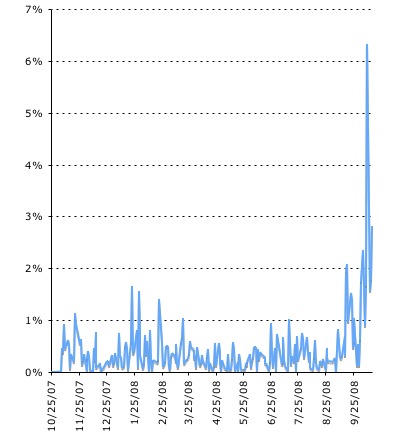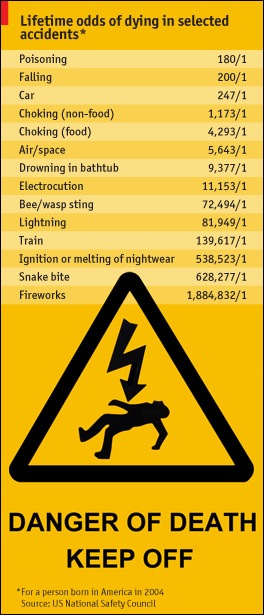So, this came up yesterday as we were drinking a little bubbly before (or was it after?) a performance of All’s Well That Ends Well at Shakespeare Santa Cruz. It’s an apparent paradox that shows up in some kinds of voting methods as well. I say “apparent” because we’re merely fooled by our assumption that some non-transitive relationships are transitive.
What do we mean by a transitive relationship? Here’s and example. 5 is greater than 4; 4 is greater than 3; by transitivity, 5 is greater than 3.
Here’s the sucker-bet version of the problem in, I think, its simplest form. Suppose I have nine playing cards, A-9, ace low, and arrange them into three piles of three cards each. The game is that you pick a card from one pile, I pick one from a different pile, and high card wins. Our assumption of transitivity leads us to assume that there’s a “best pile”. For example, a pile with the 987 cards would always win.Â
We can arrange the cards, though, so that no matter which pile you choose from, I can choose from a pile that gives me a 5/9 chance of winning. I won’t win every time, but in the long run I’ll clean up. Here are the piles:
A68 Â 357 Â 249
The A68 pile beats 357 five times out of nine; likewise 357 beats 249; and 249 beats A68!
(This particular example comes from The Math Factor; recommended.)
For the voting version of this “paradox”, let’s turn to Wikipedia.
The voting paradox (also known as Condorcet’s paradox or the paradox of voting) is a situation noted by the Marquis de Condorcet in the late 18th century, in which collective preferences can be cyclic (i.e. not transitive), even if the preferences of individual voters are not. This is paradoxical, because it means that majority wishes can be in conflict with each other. When this occurs, it is because the conflicting majorities are each made up of different groups of individuals. For example, suppose we have three candidates, A, B and C, and that there are three voters with preferences as follows (candidates being listed in decreasing order of preference):
- Voter 1: A B C
- Voter 2: B C A
- Voter 3: C A B
If C is chosen as the winner, it can be argued that B should win instead, since two voters (1 and 2) prefer B to C and only one voter (3) prefers C to B. However, by the same argument A is preferred to B, and C is preferred to A, by a margin of two to one on each occasion. The requirement of majority rule then provides no clear winner.
Voting methods that use this kind of pairwise counting, sometimes called Condorcet methods, don’t always show these cycles, of course, but when they do the cycle must be broken in order to come up with a winner. In the example above, we have a strong tie; there’s no basis in the voter preferences to choose a winner, so we have to go beyond the ballots to pick the winner; drawing lots is one way. In most cases, though, there’s some other cycle-breaking method that gives us a winner based on some reasonable interpretation of voter preferences as shown by the ballots. Follow the Condorcet methods link to Wikipedia for examples.
 Sierra Nevada
Sierra Nevada  One of the pleasures of an October visit to Minnesota is a visit to the local apple orchards. In large part, this is due to a century of apple breeding at the
One of the pleasures of an October visit to Minnesota is a visit to the local apple orchards. In large part, this is due to a century of apple breeding at the 







